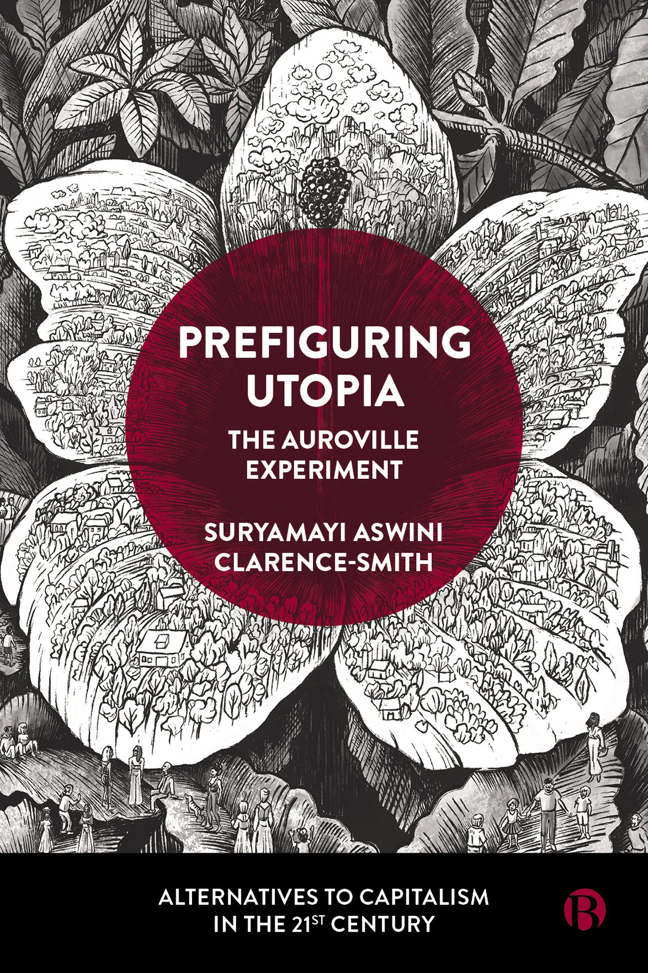Book contents
- Frontmatter
- Dedication
- Contents
- List of Figures and Tables
- Glossary
- About the Author
- Acknowledgements
- Foreword
- 1 All Life is Yoga: An Introduction
- PART I Culture
- PART II Polis
- PART III Economy
- Afterword
- Appendix A A Dream (The Mother, 1954)
- Appendix B The Auroville Charter (The Mother, 1968)
- Appendix C To Be a True Aurovilian (The Mother, 1971)
- Notes
- References
- Index
7 - The Institutional Potential of Prefigurative Experiments: The Evolution of Collective Accounts in Auroville
Published online by Cambridge University Press: 24 January 2024
- Frontmatter
- Dedication
- Contents
- List of Figures and Tables
- Glossary
- About the Author
- Acknowledgements
- Foreword
- 1 All Life is Yoga: An Introduction
- PART I Culture
- PART II Polis
- PART III Economy
- Afterword
- Appendix A A Dream (The Mother, 1954)
- Appendix B The Auroville Charter (The Mother, 1968)
- Appendix C To Be a True Aurovilian (The Mother, 1971)
- Notes
- References
- Index
Summary
Introduction
New forms are needed for the manifestation of a new Force.
The Mother, 2003c: 90Throughout the community's history, Aurovilians have experimented with various, alternative socio-economic forms of association that have sought to embody the community's ideals, as outlined by The Mother in her statements for how the township would be organized as an economic community and inspired by Sri Aurobindo's writings on flexible, subjective systems of collective organization. While Chapter 6 explored the development of Auroville's overarching communal economic administration, the current chapter examines economic experiments outside of this ‘public sector’ that ultimately informed it. The emergence and development of these experiments from the private to the public sphere is revelatory of the various levels of political agency that shape Auroville's economic practices and organization – including activist community members, community administrators and government advisors – which is significant in understanding the anarchic and ‘transgressive’ (Sargisson, 2000: 1) nature of its utopian practice.
We will focus on the evolution of a series of experiments in common accounts and how these prefigured unique cooperative public services in the community, delving into a case study of one such service – the PTDC – to explore the process of its establishment and ongoing challenges in its development. The latter will continue to be revelatory of how Aurovilians engage in a critical prefigurative practice and how this dimension of critique can both fuel and stall its progress. Such insight into the unique model and experience of Auroville's cooperatives will hopefully serve the development of the already wide-ranging practice of cooperative economic practices and organizations worldwide.
Common accounts in Auroville
I discovered the practice of common accounts in Auroville at Sunday lunch at home with my parents. Like in virtually every conversation at a family meal, we had wound up talking about Auroville – a habit that preceded my research, though the latter fomented it. On this particular Sunday, I had expressed concern over economic inequality in our community and was raising questions about how Aurovilians who struggled financially were, or could be, supported economically.
“Well, we had the Common Account”, ventured my mother, Nicole. I had never heard of it. “Who started that?”, I first asked. “We did!”, she answered. “Who's ‘we’?”, I retorted, thinking she meant Auroville at large. Nicole pointed at herself, while saying “and Peter”, my dad.
- Type
- Chapter
- Information
- Prefiguring UtopiaThe Auroville Experiment, pp. 124 - 145Publisher: Bristol University PressPrint publication year: 2023



